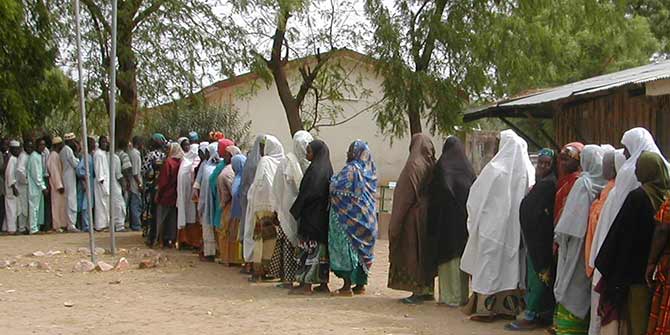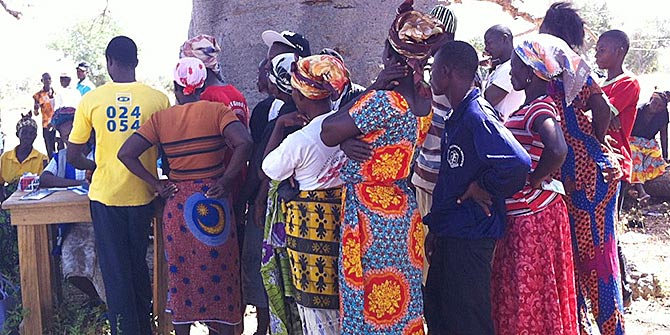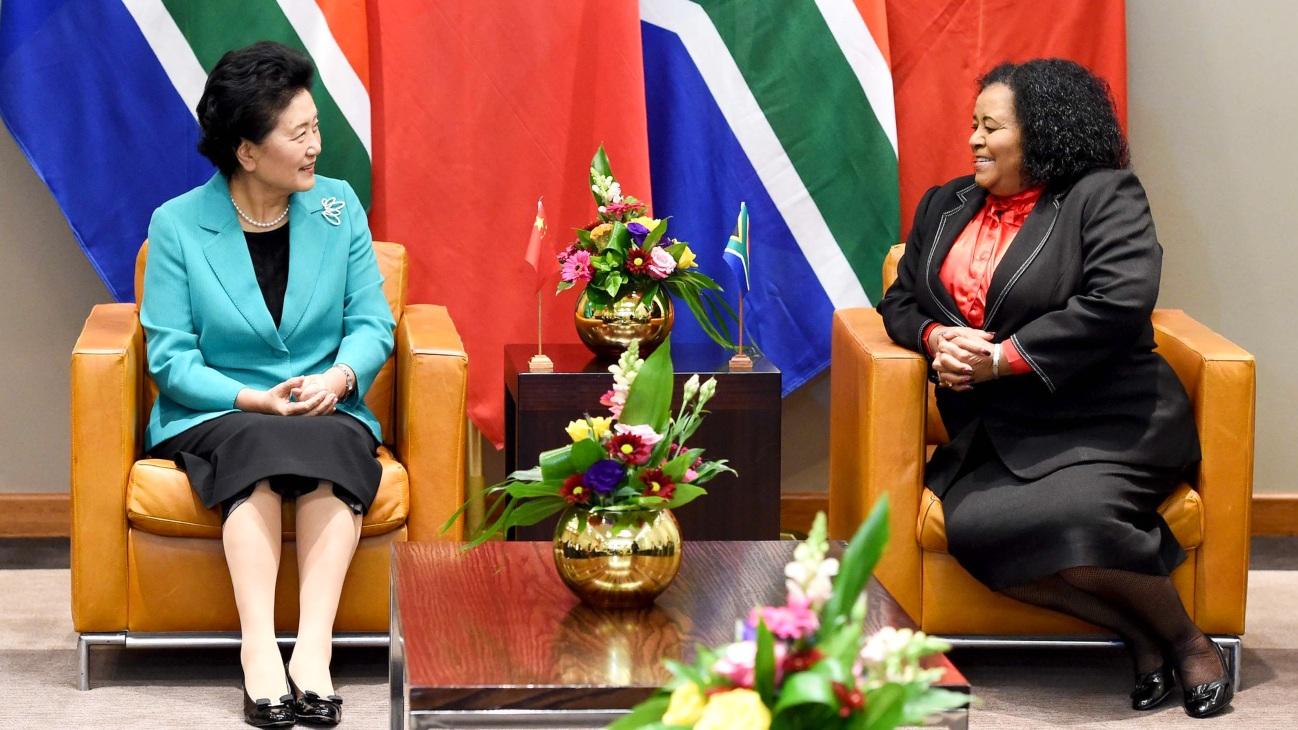What could possibly be the most ferociously contested elections in decades has been postponed for six weeks, but LSE’s Chiaka Osuala looks at points raised at the ‘How to Fix Nigeria – The 2015 Elections & Beyond’ debate held by the Royal African Society in London on 28 January. This post is part of our African Elections series.
The famous proverb “fine words do not produce food” perhaps most accurately reflects the disposition of many Nigerians towards the promises of its politicians. In light of the upcoming elections, Nigerians, both at home and in the diaspora have organised avenues for critical evaluation of key issues facing the African continent’s most populous nation. The debate, chaired by the acclaimed broadcaster, Funmi Iyanda, consisted of a panel of politics and development experts such as Zainab Usman, doctoral candidate in International Development at Oxford University; Paul Adams, distinguished Africa Advisor to Salamanca Group; Michael Ehioze-Ediae, lawyer and political pundit and Tola Sarumi, well-known culture critic.
Possibly for the first time since the country’s return to civilian rule in 1999, the leading candidates vying for the presidential seat appear equally formidable. With incumbent South-Eastern President Goodluck Ebele Jonathan (GEJ) representing the Peoples’ Democratic Party (PDP) and challenger, Muhammadu Buhari of Northern origin for the All Progressives Congress (APC), an even more thought-provoking dynamic arises. Ehioze-Ediae, an acknowledged PDP advocate, began the debate by addressing Goodluck’s achievements in office. He pointed out that PDP’s leadership has been remarkable in three critical areas of agricultural development, infrastructure reforms and the instigation of free and fair elections. The APC adherent on the panel, Sarumi, however, was clearly disconcerted with the supposed pros of Goodluck’s regime. Disagreeing emphatically that the incumbent has done enough in the area of transportation, Sarumi further expressed that during Buhari’s reign as president, at least “things worked” therefore he holds more promise to effectively tackle cogent issues such as the Boko Haram insurgency.

Propensity for Conflict Posed By the Elections: the Unavoidable Discourse.
The potential for election violence is a major concern for many. Pending matters of security are not an area in which Goodluck has found favour for obvious reasons. With the recent Boko Haram attacks involving the kidnap of the Chibok girls and the colossal massacre in Baga, the audience demanded to know why the president had been slow to address these incidences. Given that the present government continuously falls short in tackling violence, Sarumi argued that this has in fact emboldened the perpetrators to commit more atrocities.
Zainab Usman nevertheless emphasised that a vital approach towards preventing conflict in the elections would be to ensure credibility in the electoral process. Violence occurs as a consequence of people losing faith in the system. Therefore, the first step towards addressing this would be ascertaining that each person’s vote actually counts, she explained.
More Bread or Less bread? Economic Underpinnings of the Election’s Outcome.
Acknowledging the impact of elections on the economy is imperative. As Adams explained, elections bring the economy to a standstill and there is need to recover quickly. “What does food security mean in an import-dependent country?”, “How will free education be funded or unemployment reduced in hard times if these plans did not materialise during good old days of high oil prices?” are some of the questions Nigerians have for the incoming government as they wonder what would indeed be economically transformational about the next four years.

As the debate drew to a close, members of the panel described the Nigeria they would like to see starting after the elections. For Paul Adams, his ideal Nigeria would be one with stable power supply. “You cannot eliminate poverty in a generation but it’s time Nigeria had steady electricity,” Adams says. Sarumi also declared that a Nigeria where Nigerians first and foremost, regardless of their state of origin, identified as Nigerian, upholding one identity, is one she would be happy to witness.
A comment from a member of the audience, “I’m not an APC supporter, but I consider myself a GEJ dissenter” is, I believe, one that encapsulates the stance of many Nigerians towards the elections. As we wonder what four more years of GEJ could possibly bring amid disenchantment with his present leadership, some of us however, remain unconvinced by the vague promises of Buhari about doing things differently. Despite being Africa’s “economic giant”, it is hard to ignore that Nigeria is indeed broken in several places. Certainly, a crucial path towards “fixing” Nigeria would start by choosing the right leader. In spite of such uncertain and distressing times, Nigerians muster hope. Although things look bleak, but we must still maintain hope.
Chiaka Osuala is an MSc candidate in Economy, Risk and Society at LSE.
The views expressed in this post are those of the authors and in no way reflect those of the Africa at LSE blog or the London School of Economics and Political Science.





